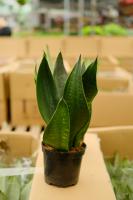How to Make a Gravity Fed Water System for Plants
If you're looking for an easy and efficient way to water your plants, a gravity-fed system might be just what you need. This type of system uses the force of gravity to supply water to your plants, eliminating the need for electricity, pumps, and other costly equipment. Here's what you need to know to set up your own gravity-fed watering system.
Step 1: Assess Your Needs
The first step in setting up a gravity-fed watering system is to assess your needs. Consider the size of your garden, the number of plants you have, and the amount of water they need to thrive. This will help you determine the size of your water storage tank, as well as the diameter and length of your irrigation pipes.
Step 2: Choose Your Water Storage Tank
Once you know how much water you need to store, you can choose a water storage tank that meets your needs. You can purchase pre-made tanks from garden supply stores, or you can make your own using a variety of materials, such as plastic drums or food-grade barrels.
Step 3: Position Your Water Storage Tank
Once you have your water storage tank, you'll need to position it at a higher elevation than the highest point on your garden. This ensures that water will flow downhill to your plants. Make sure the tank is level and secure, and consider using a platform to raise it off the ground for easy access.
Step 4: Connect Your Irrigation Pipes
Next, you'll need to connect your irrigation pipes to your water storage tank. You can use PVC or other plastic pipes, or you can use flexible tubing. Make sure your pipes are the right diameter for your needs, and be sure to use connectors and clamps to secure them in place.
Step 5: Install Your Irrigation System
Once your pipes are connected, you can install your irrigation system. You can use a variety of methods, such as drip irrigation, sprinklers, or soaker hoses. Make sure your irrigation system is set up to deliver water to each plant, and adjust the flow rate as needed.
Step 6: Test Your System
Before you start using your gravity-fed watering system, you'll need to test it to make sure it's working properly. Fill your tank with water and check the flow rate at each plant. You may need to make adjustments to your pipes or irrigation system to ensure that each plant is getting the proper amount of water.
Step 7: Maintain Your System
Once your gravity-fed watering system is up and running, you'll need to maintain it to ensure that it continues to work properly. Clean out your tank periodically, make sure your pipes are free of debris, and adjust your irrigation system as needed. With proper maintenance, your gravity-fed watering system will provide your plants with the water they need to thrive.
In conclusion, a gravity-fed watering system is an easy and efficient way to water your plants. By following these simple steps, you can set up your own system and enjoy healthy, thriving plants all season long.

 how many times do yo...
how many times do yo... how many planted tre...
how many planted tre... how many pine trees ...
how many pine trees ... how many pecan trees...
how many pecan trees... how many plants comp...
how many plants comp... how many plants can ...
how many plants can ... how many plants and ...
how many plants and ... how many pepper plan...
how many pepper plan...
































